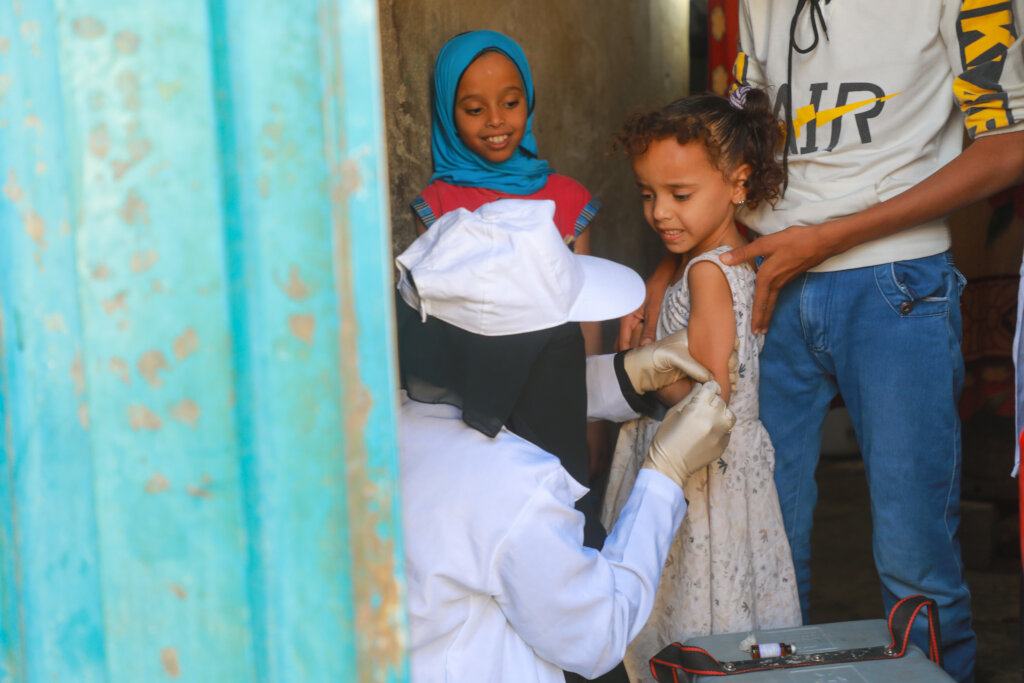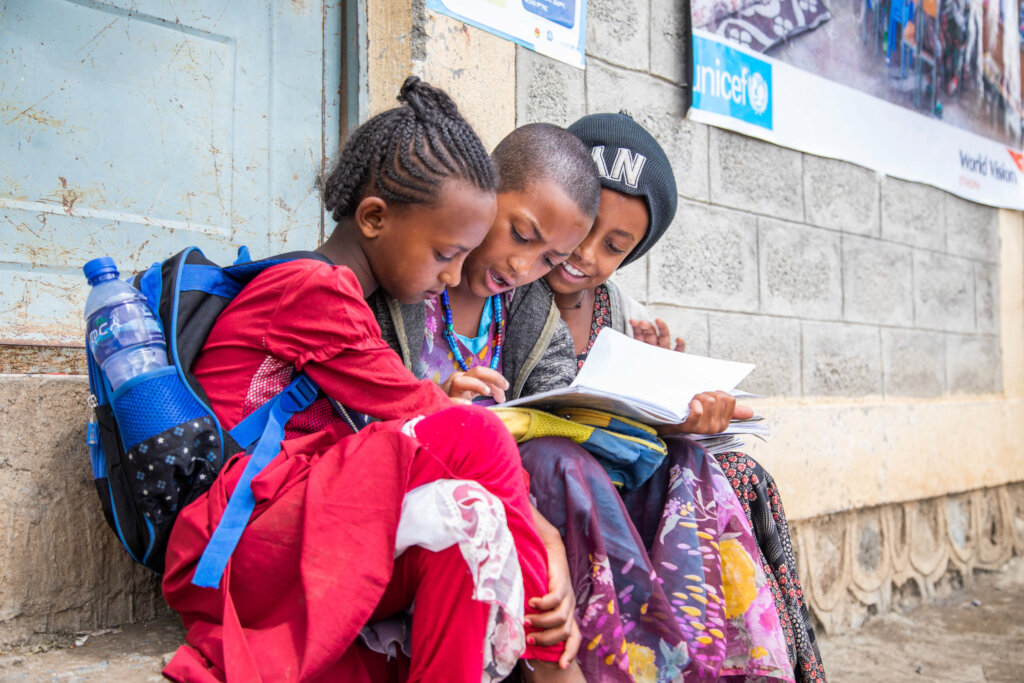By Kelly Procida | Manager, Global Cause Partnerships
Dear Friend,
Seven years into the conflict, Yemen remains one of the world’s worst humanitarian crisis with 20.7 million people — 71 percent of the total population — in need of humanitarian assistance. Significant challenges continue to persist, including limited access to the most vulnerable populations, increased fighting in Marib Governorate, heavy rains destroying shelters of internally displaced persons (IDPs) and threatening infrastructure, continued high rates of severe acute malnutrition (SAM) cases, and conflict-torn areas forcing families to flee from their homes.
As of the end of October 2021, four million people, including two million children, continue to be internally displaced. In addition, as of late 2020, Yemen hosted approximately 138,000 migrants and 177,600 refugees and asylum-seekers. Over 90 percent of migrants are of Ethiopian origin and are mostly in transit to Gulf countries to seek livelihood opportunities. Approximately 2.3 million children are facing acute malnutrition and more than 15.4 million people cannot access water, sanitation and hygiene (WASH) services. Furthermore, approximately 20.1 million people need assistance to access health services. Women and children continue to be disproportionately affected with 4.8 million women, 10.2 million children, three million people with disabilities, and 2.1 million men requiring assistance to access health services.
Thanks to your support, UNICEF has responded to emergencies across the globe including Yemen. Between January and October 2021, UNICEF has ensured that:
The overall humanitarian situation in Tigray continued to deteriorate with the resumption of airstrikes in the capital, Mekelle and surrounding areas, and expansion of the conflict affecting several areas in Amhara and Afar regions. Malnutrition among children and women worsened. Findings indicate an average severe acute malnutrition (SAM) rate of 2.5 percent, moderate acute malnutrition (MAM) rate of 13.2 percent, and an average of 66 percent of screened pregnant and lactating women (PLW) are malnourished.
Over 377,000 people were displaced as of the end of November, of whom over 200,000 people were newly displaced and had settled in 12 Internally Displaced People (IDP) sites. Of the total population displaced, more than 70,000 were children under the age of five and over 190,000 were women. Furthermore, severe drought worsened in the month of November across parts of Somali and Oromia regions. In Somali, over 2.4 million people faced acute water shortages. Since October 2021, the education of over 100,000 students has been disrupted in the drought-affected areas with the partial of full closure of 1,100 schools.
With your generous support, UNICEF is responding to the needs of children across the globe, including Ethiopia. UNICEF and partners worked to ensure that vulnerable communities have been reached through the following interventions:
In 2022, UNICEF will continue to provide life-saving assistance for children in some of the hardest-to-reach districts. With public services near collapse, UNICEF will support health and nutrition interventions through community-based activities for affected populations, including internally displaced persons. UNICEF WASH interventions will include providing durable, cost-effective solutions that strengthen the resilience of local institutions and communities, including in the context of COVID-19. UNICEF will support interventions that build the resilience of affected children through life-skills education and psychosocial support in community spaces, schools and hospitals; mitigate the risk of injuries from exposure to landmines and explosive remnants of war through targeted campaigns; and provide services to children with acute protection needs.
On behalf of the vulnerable children of Yemen and Ethiopia, thank you for your support!
In partnership,
Kelly Procida
By Kelly Procida | Manager, Global Cause Partnerships
By Whitney Simon | Manager, Global Cause Partnerships
Project reports on GlobalGiving are posted directly to globalgiving.org by Project Leaders as they are completed, generally every 3-4 months. To protect the integrity of these documents, GlobalGiving does not alter them; therefore you may find some language or formatting issues.
If you donate to this project or have donated to this project, you can receive an email when this project posts a report. You can also subscribe for reports without donating.
Support this important cause by creating a personalized fundraising page.
Start a Fundraiser
